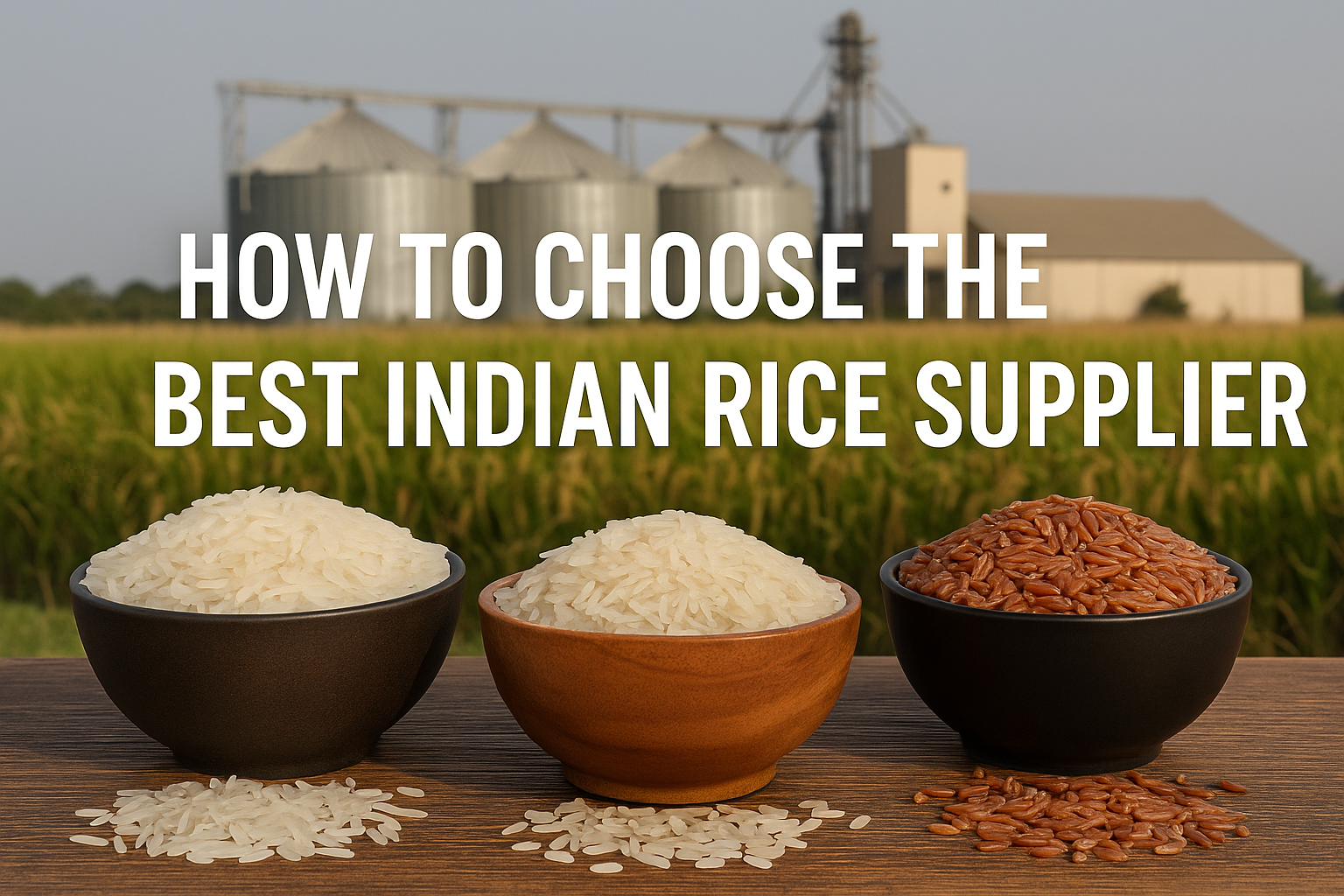
India is one of the world’s largest producers and exporters of rice, supplying premium varieties like Basmati, Non-Basmati, Sona Masoori, and more to global markets. Whether you’re a wholesaler, retailer, or food business owner, choosing the right Indian rice supplier is crucial for quality, reliability, and profitability. With so many rice exporters and manufacturers in India, how do you pick the best one? This guide breaks down the 5 key factors you must consider before making a decision—ensuring you get the best value, consistency, and service.
1. Quality and Variety of Rice Offered
The first thing to verify is the quality and range of rice varieties the supplier offers. India produces multiple rice types, each with distinct textures, aromas, and culinary uses.
- Basmati Rice – Known for its long grains and fragrant aroma, ideal for biryanis and pilafs.
- Non-Basmati Rice – Includes varieties like Sona Masoori, Ponni, and IR-64, commonly used in daily meals.
- Organic & Specialty Rice – Such as Red Rice, Black Rice, or Parboiled Rice for health-conscious buyers.
A reputable Indian rice manufacturer should provide lab-tested quality reports, ensuring the rice is free from impurities, pests, and artificial additives. Look for suppliers who follow FSSAI (Food Safety and Standards Authority of India) and APEDA (Agricultural and Processed Food Products Export Development Authority) standards.
2. Reliability and Supply Consistency
A dependable rice supplier company should guarantee consistent supply without delays or stock shortages. Factors to check:
- Production Capacity – Can they handle bulk orders without compromising quality?
- Seasonal Availability – Some rice varieties are seasonal; ensure the supplier has year-round stock.
- Past Client Reviews – Check testimonials or B2B platforms like Alibaba, TradeIndia, or ExportersIndia for credibility.
According to a 2023 report by APEDA, India exported 18.5 million metric tons of rice, emphasizing the need for suppliers with strong logistics and inventory management.
3. Pricing and Payment Terms
While cost shouldn’t be the only deciding factor, competitive pricing ensures profitability. Consider:
- Market Rates – Compare prices from multiple rice exporters in India.
- MOQ (Minimum Order Quantity) – Some suppliers offer better rates for bulk purchases.
- Payment Flexibility – Options like LC (Letter of Credit), TT (Telegraphic Transfer), or credit terms should be available.
Be cautious of extremely low prices, as they may indicate inferior quality or hidden charges.
4. Certifications and Food Safety Standards
A trustworthy supplier must comply with international food safety regulations. Key certifications include:
- ISO 22000 – Ensures food safety management.
- HACCP – Hazard Analysis and Critical Control Points for quality control.
- Organic Certifications (USDA, EU Organic) – If you’re sourcing organic rice.
Suppliers with these certifications reduce risks of contamination, rejections at customs, or legal issues.
5. Logistics and Delivery Efficiency
Efficient shipping and delivery are crucial, especially for international buyers. Key considerations:
- Packaging – Should be moisture-proof and durable to prevent spoilage.
- Shipping Partners – Reliable freight forwarders for timely delivery.
- Customs Clearance Assistance – Helps avoid delays in international shipments.
India’s rice export industry relies heavily on ports like Mundra, Kandla, and Chennai, so ensure your supplier has experience in smooth export procedures. Selecting the right Indian rice supplier requires careful evaluation of quality, reliability, pricing, certifications, and logistics. By prioritizing these factors, you can build a long-term partnership with a supplier who meets your business needs. Before finalizing a deal, request samples, verify certifications, and check trade references to ensure a smooth and profitable transaction.





























